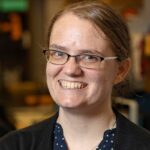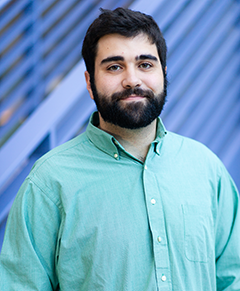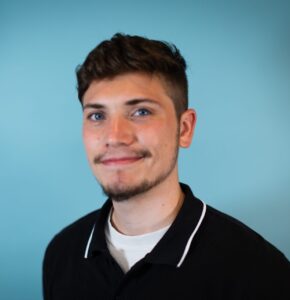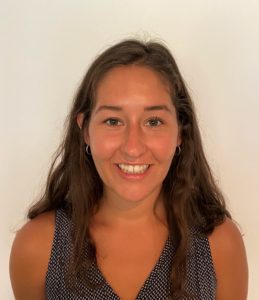Virtual Science Club (VSC) will tentatively begin on September 8, 2024 and continue through February 18, 2025. VSC usually meets on the first and third Tuesdays of the month at 7:00PM EDT. There will only be one meeting held on the first Tuesday in December in preparation of the holiday season. Meeting details will be announced throughout the season.
VSC provides free programming to assist students and teachers in developing STEM skills and to motivate students to enter the upcoming Southern Appalachian Science & Engineering Fair (SASEF), which will be held in person on the University of Tennessee, Knoxville campus on March 25, 2025.
Students and teachers from Central and West Tennessee are also welcome.
Registration will open in August 2024.
Sessions & Recordings
- The Virtual Science Club
- The Southern Appalachian Science & Engineering Fair
- How to structure a STEM project
- Go into breakout rooms by research area to meet your UTK graduate student mentor that will be hosting sessions monthly through January. The four research areas to choose from are:
- Human Sciences
- Behavioral & Social Sciences
- Medicine & Health Sciences
- Natural Sciences
- Animal Sciences
- Biochemistry
- Cellular & Molecular Biology
- Environmental Sciences
- Microbiology
- Plant Sciences
- Physical Sciences
- Chemistry
- Earth & Planetary Science
- Environmental Management
- Physics & Astronomy
- Engineering & Math
- Computer Science
- Engineering: Electrical & Mechanical
- Engineering: Materials & Bioengineering
- Energy & Transportation
- Mathematical Sciences
Session Description: Catherine (Katie) Schuman is an Assistant Professor in the Department of Electrical Engineering and Computer Science at the University of Tennessee (UT). She received her Ph.D. in Computer Science from UT in 2015, where she completed her dissertation on the use of evolutionary algorithms to train spiking neural networks for neuromorphic systems. Katie previously served as a research scientist at Oak Ridge National Laboratory, where her research focused on algorithms and applications of neuromorphic systems. Katie co-leads the TENNLab Neuromorphic Computing Research Group at UT. She has over 100 publications as well as seven patents in the field of neuromorphic computing. She received the Department of Energy Early Career Award in 2019.

In this talk, she will give a short overview of several topics in nature-inspired computing, including genetic algorithms, neural networks, and neuromorphic or brain-inspired hardware. We will discuss where the inspiration comes from in nature, as well as how it’s used in computer science and computer engineering.
Session Description:Margaret Anne (Margo) Duckson is a Senior Product Development Scientist at Bush Brother’s & Company. She received her Ph.D. in Food Science and Technology from Virgina Tech in 2014, where she completed her dissertation on the effect of allyl isothiocyanate (a mustard seed extract) on reducing Salmonella enterica Michigan and Listeria monocytogenes on the surface of whole cantaloupe. Prior to Bush Brothers & Company, she worked as a Food Scientist at Dairy Farmers of America on ready-to-drink (shelf-stable, retorted) beverages and as Scientist at the J.M. Smucker Company within the Coffee Formulation team.

In this session, she will discuss the food product development process from idea generation to finished product on store shelves and what all it entails.
Session Recording
Session Description: Go into breakout rooms by research area to discuss your plans for your 2025 SASEF STEM project. Bring any and all questions you may have!
Session Recording
Session Description: Meet Dr. Angela Tucker, the ultimate bug enthusiast! With degrees in chemistry, wildlife biology, and environmental sciences, she’s a board-certified entomologist who loves exploring the world of insects. Angela started her journey in high school as a certified nursing assistant and has taken on all sorts of roles since then. She’s not just a scientist; she’s a fantastic presenter, having given hundreds of talks and workshops on cool science topics. Now, she works as a Training and Education Specialist at the University of Tennessee, where she shares her knowledge about vectors and diseases. Join her to discover the exciting twists and turns of her career!
Session Recording
Session Description: Go into breakout rooms by research area to discuss your plans for your 2025 SASEF STEM project. Bring any and all questions you may have!
Session Recording
Session Description: Go into breakout rooms by research area to discuss your plans for your 2025 SASEF STEM project. Bring any and all questions you may have!
Session Description: Go into breakout rooms by research area to discuss your plans for your 2025 SASEF STEM project. Bring any and all questions you may have!
Session Description: Dr. Mina Sartipi is the Founding Director of the Center for Urban Informatics and Progress (CUIP) at the University of Tennessee at Chattanooga (UTC), where she is also a Guerry Professor in the Computer Science and Engineering Department. Her research, funded by NSF, NIH, DOE, State of the Tennessee, Lyndhurst Foundation, and other industry organizations, focuses on data-driven approaches to tackle real-world challenges in smart city applications focused on mobility, energy, and health. At CUIP, she coordinates cross-disciplinary research and strategic visions for urbanism and smart cities advancement with a focus on people and quality of life. Join us as she discusses the impact of her research now and in the future!
Session Recording
SASEF Categories – What breakout session to attend?
One meeting per month will feature smaller “breakout” sessions separated into the following four research areas. Each research area’s breakout room will have mentors including a UT graduate student, at least one science and engineering professional, and at least one SASEF board member. These mentors will assist students with questions about STEM activities particularly focusing on those activities that will support a SASEF project.
- Human Sciences
- Behavioral & Social Sciences
- Medicine & Health Sciences
- Natural Sciences
- Animal Sciences
- Biochemistry
- Cellular & Molecular Biology
- Environmental Sciences
- Microbiology
- Plant Sciences
- Physical Sciences
- Chemistry
- Earth & Planetary Science
- Environmental Management
- Physics & Astronomy
- Engineering & Math
- Computer Science
- Engineering: Electrical & Mechanical
- Engineering: Materials & Bioengineering
- Energy & Transportation
- Mathematical Sciences
Meet The Research Area Mentors
Aaron Onufrak, Natural Sciences Mentor

Aaron is a 3rd year PhD student in the Entomology and Plant Pathology department at the University of Tennessee. He studies the fungi and bacteria that associate with eastern black walnut, a tree that is highly valued for its lumber. He is currently working to identify methods to control the fungal pathogen that causes Thousand Cankers Disease, which kills eastern black walnut trees throughout the United States. His long term career goal is to be an instructor at a college or university sharing my passion for biology with undergraduate students.
Andrew Amburn, Machine Learning and Emerging Technology
 Andrew is a 3rd year graduate student in the department of Genome Science and Technology at the University of Tennessee-Knoxville. His research focuses on developing computational techniques to target RNAs involved in human disease. Specifically, he focuses on the use of machine learning to assist the process of discovering new drugs which can bind RNA with high affinity. Andrew’s career goal is to be a staff research scientist at Oak Ridge National Laboratory and continue pushing the boundaries of science in new and impactful ways.
Andrew is a 3rd year graduate student in the department of Genome Science and Technology at the University of Tennessee-Knoxville. His research focuses on developing computational techniques to target RNAs involved in human disease. Specifically, he focuses on the use of machine learning to assist the process of discovering new drugs which can bind RNA with high affinity. Andrew’s career goal is to be a staff research scientist at Oak Ridge National Laboratory and continue pushing the boundaries of science in new and impactful ways.
Emily Proehl, Engineering & Math Mentor

Emily is a 4th year graduate student in the Department of Materials Science and Engineering at the University of Tennessee-Knoxville. Her research focuses on structural materials for nuclear reactors, which must withstand extreme environments – high temperature, corrosive fluids, and intense radiation. The overarching objective is to make nuclear reactors more cost-competitive and safer to help power the globe. Emily’s career goals are to further nuclear materials development and the understanding of radiation effects in materials, while paying forward the invaluable mentorship she received throughout her educational pursuits.
Human Sciences Mentor
TBA